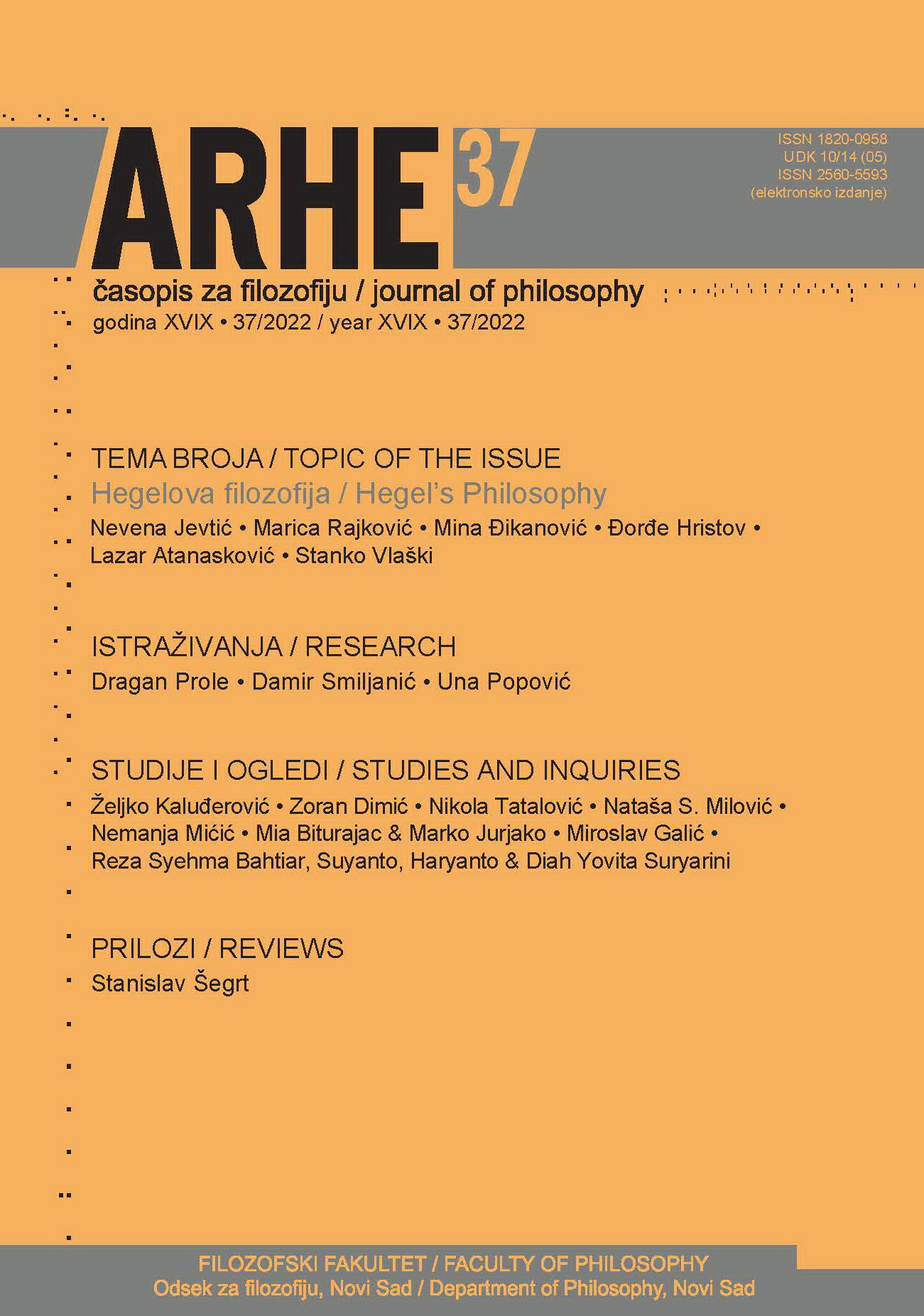THE IMPORTANCE OF THE CONCEPT OF HARM IN THE DEBATE ON MENTAL DISORDERS
Main Article Content
Abstract
The notion of harm is frequently used in the discussion of the nature of mental disorder. Harm also plays important roles in the prominent diagnostic manuals such as DSM and ICD. Recently, however, Cristina Amoretti and Elisabetta Lalumera have questioned the idea that harm should be a necessary constituent of mental disorders. They argue that the notion of harm is underspecified and potentially leads to false negatives in diagnosing mental disorders. Given that harm plays significant roles in medical diagnosis and treatment indicates that we should be reluctant to remove it as a criterion for deciding whether some condition is a mental disorder. Instead, we argue that harm should be understood in the prudential sense and harm in this sense provides a way of responding to worries raised by Amoretti and Lalumera, while staying true to the conception of harm that is relevant for psychiatric practice.
Article Details

This work is licensed under a Creative Commons Attribution-NoDerivatives 4.0 International License.
References
Amoretti, C. i Lalumera, E., „Harm should not be a necessary criterion for mental disorder: some reflections on the DSM-5 definition of mental disorder“ u Theoretical Medicine and Bioethics, vol. 40, br. 4, 2019., str. 321–337.
American Psychiatric Association (APA), Diagnostic and statistical manual of mental disorders: DSM-IV, 4. izd., American Psychiatric Association, Washington, DC, 1994., str. xxi–xxii.
American Psychiatric Association (APA), Diagnostic and statistical manual of mental disorders: DSM-5, 5. izd., American Psychiatric Association, Washington D.C, 2013.
Bayer, R., Homosexuality and American psychiatry: the politics of diagnosis, Princeton University Press, Princeton, N. J., 1987.
Biturajac, M. i Jurjako, M. „Reconsidering harm in psychiatric manuals within an explicationist framework“ u Medicine, Health Care, and Philosophy, rad na recenziji.
Bolton, D., What is mental disorder? Oxford University Press, Oxford, 2008.
Boorse, C., „A second rebuttal on health“ u The Journal of Medicine and Philosophy, vol. 39, br. 6, 2014., str. 683–724.
Brzović, Z., „Duševne bolesti i rasprava o biološkim funkcijama“ u Moralni, politički i epistemološki odgovori na društvene devijacije (priredili Prijić-Samaržija, S., Malatesti, L. i Baccarini, E.), Sveučilište u Rijeci, Filozofski fakultet, Rijeka, 2016., str. 183–199.
Campbell, S. i Stramondo, J., „The complicated relationship of disability and well-being“ u Kennedy Institute of Ethics Journal vol. 27, br. 2, 2017., str. 151–184.
Cooper, R. V., „Avoiding false positives: zones of rarity, the threshold problem, and the DSM clinical significance criterion“ u The Canadian Journal of Psychiatry, vol. 58, br. 11, 2013., str. 606–611.
Cooper, R. V., „Disease“ u Studies in History and Philosophy of Science Part C, vol. 33, br. 2, 2002., str. 263–282; Wakefield, J., „The concept of mental disorder. On the boundary between biological facts and social values“ u The American Psychologist, vol. 47, br. 3, 1992., str. 373–388.
Drescher, J., „Out of DSM: depathologizing homosexuality“ u Behavioral Sciences, vol. 5, br. 4, 2015., str. 565–575.
Fiorani, M., „Rationality, irrationality and irrationalism in the anti-institutional debate in psychiatry around the second half of the 1970s in Italy“ u European Journal of Analytic Philosophy, vol. 16, br. 2, 2020., str. 101-121.
Hall, A. i Tiberius, V., „Well-being and subject dependence“ u The Routledge handbook of philosophy of well-being (priredio Fletcher, G.), Routledge, London i New York, 2016., pogl. 14.
Hausman, D. M., „Health, naturalism, and functional efficiency“ u Philosophy of Science, vol. 79, br. 4, 2012., str. 519–541.
Hooker, E., „A preliminary analysis of group behavior of homosexuals“ u The Journal of Psychology, vol. 42, br. 2, 1956., str. 217–225; Hooker, E., „The adjustment of the male overt homosexual“ u Journal of Projective Techniques, vol. 21, br. 1, 1957., str. 18–31.
Hubbard, E. M., „Neurophysiology of synesthesia“ u Current Psychiatry Reports vol. 9, br. 3, 2007., str. 193–199.
Lancellotta, E. i Bortolotti, L., „Delusions in the two-factor theory: pathological or adaptive?“ u European Journal of Analytic Philosophy vol. 16, br. 2, 2020., str. 37–57.
Loria, E., „A desirable convulsive threshold. Some reflections about electroconvulsive therapy (ECT)“ u European Journal of Analytic Philosophy, vol. 16, br. 2, 2020., str. 123–144.
Malatesti, L. i Jurjako, M., „Vrijednosti u psihijatriji i pojam mentalne bolesti“ u Moralni, politički i epistemološki odgovori na društvene devijacije (priredili Prijić-Samaržija, S., Malatesti, L. i Baccarini, E.), Sveučilište u Rijeci, Filozofski fakultet, Rijeka, 2016., str. 153–181.
Phillips, M., „Is distress a symptom of mental disorders, a marker of impairment, both or neither?“ u World Psychiatry, vol. 8, br. 2, 2009., str. 91–92.
Sackris, D., „Famine, affluence, and amorality“ u European Journal of Analytic Philosophy, vol. 17, br. 2, 2021., str. (A1)5-30.
Spitzer, R. i Williams, J. B., „The definition and diagnosis of mental disorder“ u Deviance and mental illness (priredio Gove W. R), Sage annual reviews of studies in deviance, vol. 6, Sage Publications, Beverly Hills, 1982., str. 15–31.
World Health Organization, The ICD-10 classification of mental and behavioural disorders: clinical descriptions and diagnostic guidelines, World Health Organization, Geneva, 1992.
